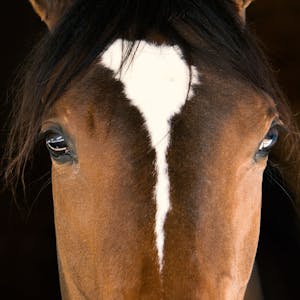This unique course, developed by veterinarians at the University of California, Davis, delves into equine welfare and management from a holistic perspective. Through a welfare lens, participants gain knowledge of equine physiology, behavior, nutrition, hygiene, and disease management. Emphasizing "The Five Freedoms" of animal welfare, the course explores the fundamental needs of horses and equips learners with the ability to assess a horse's overall condition and identify potential issues.
Participants will learn about the specialized needs of equine athletes and the responsibilities of owners, handlers, and competitors in ensuring the well-being of their equine companions. The course also addresses disaster planning and international welfare efforts aimed at safeguarding working horses in various industries, including racing, international competition, tourism, and mining.
By the end of the course, learners will be well-prepared to develop comprehensive welfare plans for the horses under their care, ensuring their health and happiness.
Certificate Available ✔
Get Started / More Info
This course encompasses modules covering the normal horse physiology, hydration and nutrition, proper care and environment, fitness and disease prevention, equine behaviors, and human-equine interaction. Participants will gain comprehensive knowledge to develop a holistic welfare plan for the horses in their care.
The first module provides an in-depth exploration of the normal horse, covering key aspects such as physiology, recognition of a healthy horse, evaluation of vital signs, weight assessment, and variations among breeds. Participants will also learn about basic equine anatomy, locomotion, and hoof physiology.
In the second module, participants will delve into the importance of hydration and nutrition, understanding the digestive system, determining nutritional requirements, and assessing dehydration. The module also covers various feed types and methods for checking jugular fill and conducting hydration tests.
The third module focuses on providing proper care and a safe environment for horses. It covers standards of care, assessing stall and pasture quality, ensuring safety, emergency preparedness, and footing surfaces. Participants will also learn about exercising horses and adequate shelter.
The fourth module addresses assessing fitness, preventing common diseases and injuries. It covers cardiovascular and musculoskeletal fitness, deworming, vaccination plans, hoof and dental care, biosecurity, and recognizing signs of pain and discomfort. The module also includes strategies for minimizing insect populations and preventing disease spread.
The fifth module explores normal and abnormal equine behaviors, delving into the horse as a prey and herd animal, normal behavior of stabled horses, equine social behavior, and recognizing and addressing problem behaviors. Participants will gain insights into observing herd behavior and addressing behavior problems.
The final module delves into human-equine interaction and equine welfare, covering the human-equine partnership, recognizing stress and fear, equine athletes, caring for older horses, the unwanted horse, international welfare concerns, and major equine sport and welfare organizations. Participants will also engage in self-reflection activities related to the horse's perspective.
Chicken Behaviour and Welfare is a comprehensive course covering avian sensory perception, motivation, behaviour patterns, and welfare standards, suitable for both...
Communicating with the Public is a course designed to enhance public-facing communication skills and boost confidence in various speech-communication scenarios.
Dive into the world of dairy production and management with this comprehensive eight-week course. Gain insight into genetics, nutrition, animal health, and more...
Sustainable Food Production Through Livestock Health Management equips learners with the knowledge and skills to address infectious disease challenges in animal-based...